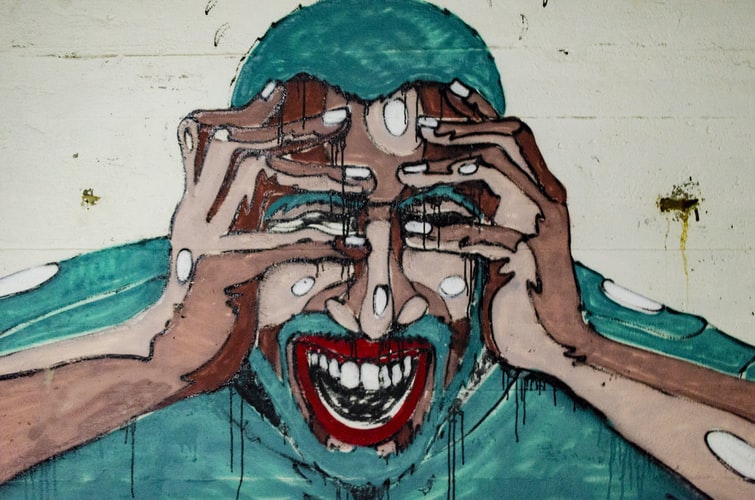Have you just congratulated the nth person this year on their amazing promotion/great new job/groundbreaking start up? Are you overwhelmed with the constant feeling you are not good enough, smart enough, or accomplished enough? Jurek Wötzel suggests a powerful antidote: reading.
When I was eight years old, I was diagnosed with ADHD. At school, my teachers did not know how to handle my impulsiveness, and at home, my parents were completely overwhelmed. Hence, I medicated myself with nicotine, weed, and alcohol, until I was kicked out of school at the age of sixteen. This moment changed my life forever. I knew I hit rock bottom.
So I decided to change everything. I quit drugs, started working out, educated myself in mindfulness, and adopted a healthy diet. Soon, I returned to school, received better grades, and, believe it or not, got into Harvard. Both my academic achievements and my humanitarian work were awarded with the Nobel Prize in the category “Everything” and currently, I am waiting for my certificate of the “Best Human Award”. At the age of 21, I am also proud to announce that I was named CEO of the company that previously would not even invite me for an interview.
Congratulate Jurek for his new job!
Tell me if that is not how the average story on LinkedIn sounds. Our generation is amazing. We must be the most successful generation ever. Successful at what? At life.
Or so it seems. Whatever medium we look at, TV, social media, online magazines, etc., our world is full of heroic individuals that overcame their old, faulty self by mastering the art of resilience, stoicism, and mindfulness. No matter the obstacle, no matter the pain, in the end, everyone succeeds if they try hard enough.

Success is a choice
Really? Here is a controversial idea: not everyone can be successful. Not everyone should be successful. Not everyone will be successful. That is perfectly fine, and yet, it does not seem fine. It seems as though everyone who does not come first, comes last.
Most of us have considerable talent in some area, some sport, some aspect of social life. Some of us are wise, pretty, or charismatic. But most of us are not outstanding in any way, some of us do not even have any special talent. And then, some people seem to have everything.
This latter category is the kind of individual that our world seems to be populated with, at least if you trust most cultural products you consume. Everyone around you is perfect, and you know why? Because they chose to be. So you should get the hell out of your armchair and stop playing online poker.
It is not rocket science to see the kind of anxiety that the experience of other people’s success overshadowed by one’s own mediocrity induces. Humans understand problems as the gap between an ‘is’ and an ‘ought’, so constant exposure to what one should be like will ruin any feeling of contentedness. The new norm is to be special, yet almost no-one truly is.
“Comparison is the thief of joy” – Theodore Roosevelt
Mediocrity is a fact of life, but the combination of globalisation and social media is doing its work to obscure this reality. We are no longer confronted only with the competition of those in our close environment, like our city, we are confronted with the whole world. Through our digital lens, we see the success stories of people that live thousands of miles away from us.
The law of multitude comes into play: the likelihood of having one exception to the rule is much higher in a crowd of a million people than in a crowd of a thousand. So if you start comparing yourself with the top performer in a crowd of a million people, you are gonna have a much harder time. This is what globalisation made possible: upward and downward comparison to an extent that was previously unknown to mankind.
If globalisation is the fertile ground, social media is the long-awaited rain that lets the seed of perfect competition grow into a powerful tree. Social media is just the little additional reminder in our pockets, telling us every fifteen minutes that in this very moment, we could be laying on a yacht in the Mediterranean, or descend into the invisible precariat. The milieu that the Europeanised middle-class only ever sees as numbers in alarming newspaper articles.
We have become used to a culturally instilled inferiority complex arising from completely unrealistic expectations.
It is hard not to fall prey to this. As a generation, we’ve become used to a life with elevated levels of cortisol in our veins. We have become used to a culturally instilled inferiority complex arising from completely unrealistic expectations.
What can we do? I think we can learn to accept that mediocrity is a fact of life, despite Instagram and LinkedIn. We can stop taking seriously the idea that people who are happy on Instagram must be happy in real life, and that people successful on LinkedIn must be successful human beings. We can start accepting failure, boredom, apathy, melancholy, hopelessness.
Why reading fiction can give relief

Social media makes us believe that only success stories are worth telling. Narratives only matter if they have a happy ending and their protagonists are only interesting if they are heroes. Well, if that were true, the world of literature would be far less rich than it is today.
Had publishing houses only ever sold success stories, we would have never had the pleasure to meet Dostoevsky’s Raskolnikov, Goethe’s Werther or Shakespeare’s Hamlet. Literature is full of these failed characters, it delves into their suffering, it highlights their imperfections, and embraces their mediocrity. A good book can easily make the seemingly boring existence of a civil servant seem like a grand spectacle.
In the Magic Mountain, Thomas Mann was able to write a thousand pages about practically nothing. Yet, I would call it one of the greatest books ever written. Hans Castorp, the protagonist, is an absolute anti-hero, a conformist par excellence, neither particularly clever, adventurous nor good-looking. But Mann brings incredible detail to the experiences that Hans Castorp makes at the tuberculosis sanitorium where he visits his disease-stricken cousin. Endless reflections on characters, cultures, science, love and philosophy leave you with a close-to-complete picture of the European spirit before World War I. And within this gigantic composition of the thought of the Epoche is poor little Hans Castorp with his average intellect, charisma and wit, a figurative victim of the battle of ideas.
Such books do a good job at helping you find beauty in your everyday activities. To be sure, figures such as Hesse’s Siddhartha, Wilde’s Dorian Gray and Fitzgerald’s Gatsby are polar opposites to Hans Castorp. Siddhartha, for example, masters any task given to him. He is so special, even the great Buddha doesn’t really impress him with his teachings. Yet, this novel still gives you so much more than just the plain wish to succeed. Spoiler Alert! At last, perfect mastery of every possible craft does not give Siddhartha satisfaction either.
Reading literally makes you happier!
What I am writing about here is not just my optimistic, book-adoring, intellectual masturbation. It is long known that reading fiction improves your ability to empathise with others and is hence a great way of getting us narcissists away from our self-centred mindsets. But here’s the real deal: reading literally makes you happier!
Several studies have reported a reduction of symptoms in patients with clinical depression after a so-called bibliotherapy. And a professor from the University of Liverpool concludes from a study with over 4,000 participants that reading just 30 minutes a week can significantly increase your happiness about yourself and your life.
My advice? Stop wasting your time on Instagram, LinkedIn and co. You are not living a much more boring or mediocre life than most of the friends and colleagues you see on social media. You are actually doing just fine. Instead, go to the library, the bookshop or just your grandparents’ living room and open the first damn book that catches your eye. Trust me, it will be great.
Cover photo: Patrick Tomasso (Unsplash), Unsplash Licence









